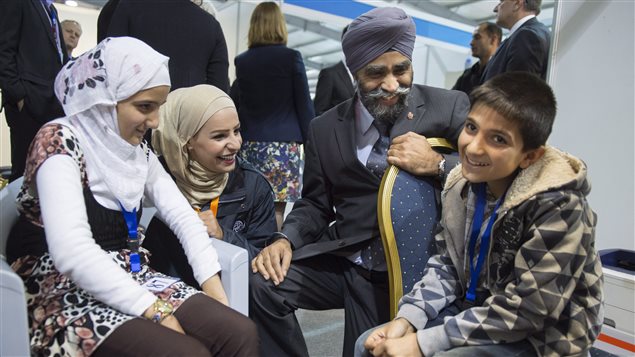Canadian doctors are mobilizing colleagues and other health workers to offer mental and physical services to the thousands of Syrian refugees who will soon arrive. In Toronto alone, 13 clinics have been set up to handle the surge of refugees expected to begin in earnest in the second week of December.
Dr. Meb Rashid is one of the people behind the mobilization. He is medical director of the Crossroads Clinic at the Women’s College Hospital in Toronto, a facility that serves newly-arrived refugees.
ListenPlan to provide care within days
Doctors like to see refugees within three or four days of their arrival and to make sure they are up to date on vaccinations, to discern illnesses and provide treatment for chronic diseases that may have gone untreated due to difficult circumstances. As for their mental health, Rashid says it’s good to give people time to settle in and not be overzealous in treating them.
He adds that although refugees may have been through traumatizing experiences, he has found that only about 10 to 20 per cent suffer from post-traumatic stress. They may have nightmares, flashbacks, hyper vigilance, anxiety, and even survivor’s guilt and he says they need rapid treatment.

Early treatment important for those ‘really struggling’
“For the folks who are really struggling—the people who aren’t coping or are unable to gather up the energy to navigate the system, they’re having difficulty with relationships and communicating with their family members—it is important to get people into treatment early because we want to make sure they have all the opportunities to integrate well,” says Rashid.
Maternal care offered
For some people the symptoms may show up only a few months after their arrival, after the initial euphoria wears off and the reality of finding a job and learning the language set in. For them, having had an initial meeting with doctors can really help by providing a friendly face they can turn to.
At the same time, there are specialists like the Society of Obstetricians and Gynaecologists of Canada which have offered help. That group has committed to providing care to newly-arrived pregnant women and those who have recently given birth.
Eventually clinics will refer refugees to health care professionals in the communities in which they finally settle. Services to the refugees will be free and provided by Canada’s publicly-funded health care system.







For reasons beyond our control, and for an undetermined period of time, our comment section is now closed. However, our social networks remain open to your contributions.